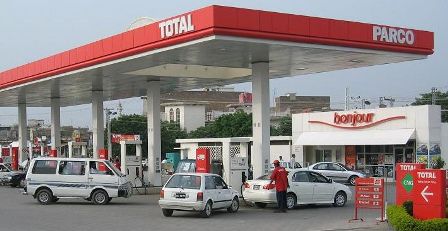The Nigerian news wave has recently been polluted with calls for a fuel price increase from about N165 per litre to almost N400 per litre.
Nigerian Labour Congress (NLC) has instructed its members to standby for a nationwide strike.
Even to many Nigerians, buying petrol at N165 per litre is on the high side. And the possibility of an inflationary bomb resulting from any further fuel price hike is what many Nigerians do not want to imagine.
Notwithstanding, whether or not there would be a fuel price hike in Nigeria, motorists must begin to explore driving more efficiently for the purpose of making the fuel in your tank go further, which can be achieved by imbibing the following tips:
- Plan your travelling
One of the best ways to save fuel is to drive less. This can be done by proper planning, for example instead of going to the mall every day, rather allocate a bit more time and go once a week and do all your shopping.
If you need to travel a fair distance for appointments, try to group them with other stops that you need to make in the same area.
Where possible avoid rush hour, travelling during peak hour means a longer journey in terms of time and your car will thus use more fuel. Leaving timeously will also mean you are less rushed and driving in a relaxed manner is a sure way of saving fuel.
- Change your driving style
The way you drive your vehicle is the biggest contributor to how much fuel it uses. Avoid speeding up between intersections and excessively revving your vehicle.
A smooth, gradual, acceleration technique is the most economical way to drive, as is maintaining a constant speed on the highway and sticking to the speed limit.
- Limit your use of the air conditioning
Your cars air conditioner can contribute as much as 5% to your fuel bill, especially when stationary. A good idea is to turn it off when you are standing still and switch it back on once you are up to speed.
- Check your tyre pressures regularly
Underinflated tyres are a huge contributor to unnecessary fuel consumption. Tyres should be checked regularly and inflated according to the manufacturer’s specifications for the amount of load you are carrying.
The correct pressures are normally found in the doorframe or fuel flap of your vehicle or in the owners manual.
- Lose that extra weight
Extra weight in your vehicle will also push up fuel consumption. Remove any unnecessary weight by removing any non-essential items. The same goes for unnecessary accessories like roof racks and bicycle carriers that not only add weight but also disrupt the aerodynamic properties of your vehicle.
While these tips will go a long way in saving you some money, having the right vehicle for the job is the easiest way to save money. If you happen to be car-shopping, investing in a smaller, more fuel-efficient vehicle is the easiest way to save money.
©Copyright MOTORING WORLD INTERNATIONAL.
All rights reserved. Materials, photographs, illustrations and other digital content on this website, may not be reproduced, published, broadcast, rewritten or redistributed in whole or in part without prior written permission from Motoring World International
Contact: [email protected]




